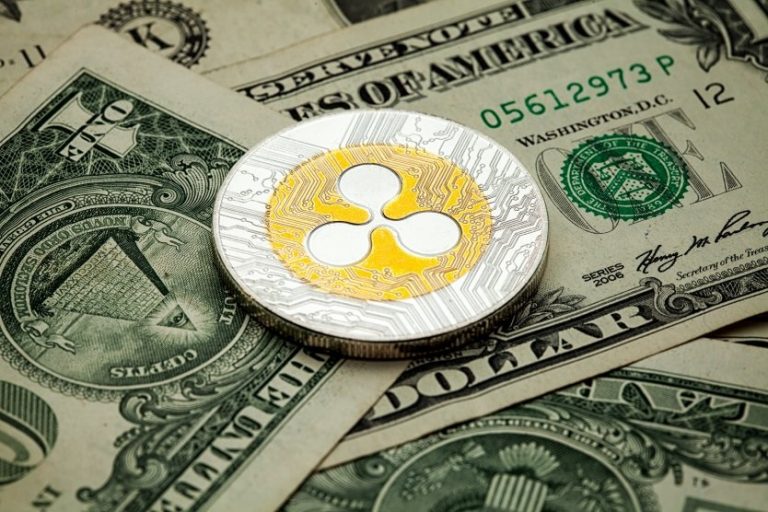
Ripple’s RLUSD stablecoin has been officially recognized as a compliant crypto token by the Dubai Financial Services Authority (DFSA) for use within the Dubai International Financial Centre (DIFC). This approval, announced on June 3, 2025, marks a significant milestone for Ripple, enabling RLUSD to be integrated into its DFSA-licensed payment solutions and used by nearly 7,000 registered businesses in the DIFC for virtual asset services like payments and treasury management.
RLUSD, backed 1:1 by USD reserves and issued on the XRP Ledger and Ethereum, is designed for enterprise-grade utility, focusing on efficient cross-border payments. The move aligns with Dubai’s ambition to become a global hub for digital assets, supported by a 55% year-on-year increase in stablecoin transactions in the UAE in 2024. Ripple’s partnerships with local entities like Zand Bank, Mamo, and Ctrl Alt for real estate tokenization further strengthen its regional presence.
RLUSD’s approval for use in the DIFC enables Ripple to integrate the stablecoin into its payment solutions for nearly 7,000 businesses, enhancing its utility for cross-border payments and treasury management. This strengthens Ripple’s position as a leader in enterprise blockchain solutions. As RLUSD is issued on the XRP Ledger and Ethereum, this recognition could drive increased activity on the XRP Ledger, potentially boosting XRP’s market relevance despite ongoing regulatory challenges elsewhere.
Register for Tekedia Mini-MBA edition 19 (Feb 9 – May 2, 2026).
Register for Tekedia AI in Business Masterclass.
Join Tekedia Capital Syndicate and co-invest in great global startups.
Register for Tekedia AI Lab.
Ripple’s partnerships with UAE-based entities like Zand Bank and Mamo, and its role in tokenizing real estate with Ctrl Alt, signal deeper market penetration in the Middle East, a region with growing crypto adoption (55% year-on-year stablecoin transaction growth in the UAE in 2024). The DFSA’s approval positions Dubai as a forward-thinking regulator, fostering a crypto-friendly environment in the DIFC. This aligns with the UAE’s goal to become a global digital asset hub, potentially attracting more blockchain firms.
Stablecoin integration in payments and treasury operations could streamline financial processes for DIFC businesses, reducing costs and settlement times for cross-border transactions, a key feature of RLUSD’s design. RLUSD’s enterprise focus and regulatory compliance in Dubai could challenge dominant stablecoins like Tether (USDT) and USD Coin (USDC), especially in institutional use cases. Its 1:1 USD backing and transparency (with monthly attestations) may appeal to risk-averse businesses.
The approval underscores the growing acceptance of stablecoins as a bridge between traditional finance and crypto, particularly in regions with progressive regulations. Dubai’s embrace of RLUSD contrasts with stricter regulatory environments like the United States, where Ripple faces ongoing SEC scrutiny over XRP’s status. The UAE’s clear framework under the DFSA highlights a divide between jurisdictions fostering crypto innovation (e.g., UAE, Singapore) and those imposing stringent rules (e.g., U.S., parts of Europe).
Countries with favorable regulations are attracting blockchain firms, while restrictive regimes may push companies like Ripple to prioritize markets like the UAE, potentially slowing crypto development in less welcoming regions. RLUSD’s focus on enterprise use cases (e.g., payments, treasury) contrasts with stablecoins like USDT, which dominate retail and decentralized finance (DeFi) markets. This creates a divide between institutional adoption (fueled by regulatory clarity) and retail-driven ecosystems.
The Middle East’s rapid stablecoin adoption (evidenced by the UAE’s 55% transaction growth) contrasts with slower uptake in regions with regulatory uncertainty or limited infrastructure, deepening global disparities in crypto access. RLUSD’s entry intensifies competition with USDT and USDC, but its success hinges on capturing institutional trust. Dubai’s approval gives Ripple a first-mover advantage in a key financial hub, but scaling globally will require navigating varied regulatory landscapes.
RLUSD’s integration into DIFC businesses bridges crypto and traditional finance, but it also underscores a divide between blockchain-native solutions and legacy systems, which may resist adoption due to inertia or compliance concerns. The DFSA’s recognition of RLUSD strengthens Ripple’s position in the stablecoin market and bolsters Dubai’s status as a crypto hub, with implications for faster, cheaper cross-border payments and increased blockchain adoption in the region.
However, it also highlights a global divide: progressive jurisdictions like the UAE are accelerating crypto integration, while restrictive ones lag, creating uneven innovation and adoption landscapes. Ripple’s strategic focus on enterprise solutions and regional partnerships could give RLUSD a competitive edge, but scaling globally will require navigating this regulatory and adoption divide.



